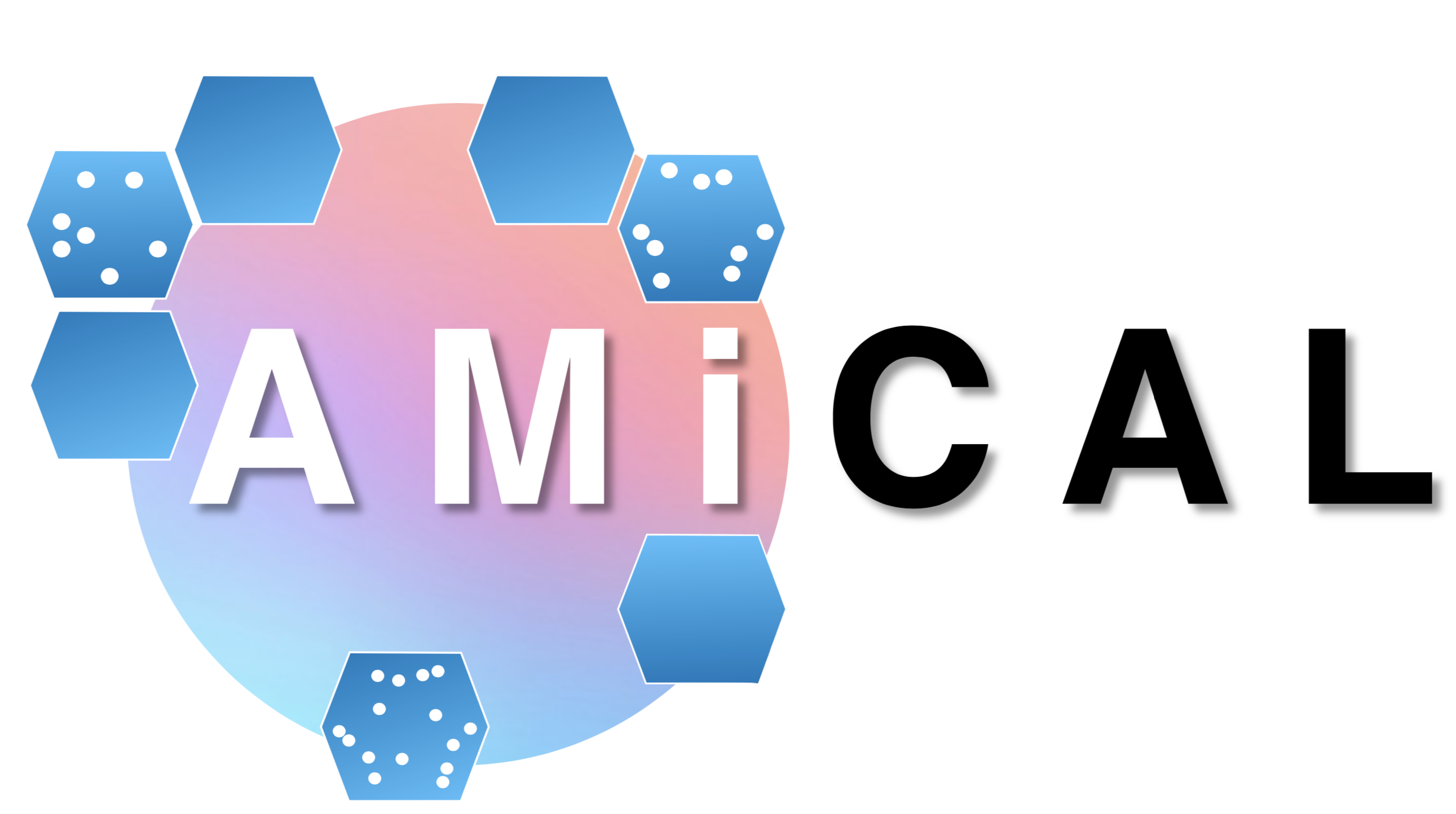Home
(Aperture Masking Interferometry Calibration and Analysis Library)
Installation
$ python3 -m pip install amical
What can AMICAL do for you ?
AMICAL is developed to provide an easy-to-use solution to process Aperture Masking Interferometry (AMI) data from major existing facilities: NIRISS on the JWST (first scientific interferometer operating in space), SPHERE and VISIR from the European Very Large Telescope (VLT) and VAMPIRES from SUBARU telescope (and more to come).
We focused our efforts to propose a user-friendly interface, though different sub-classes allowing to (1) Clean the reduced datacube from the standard instrument pipelines, (2) Extract the interferometrical quantities (visibilities and closure phases) using a Fourier sampling approach and (3) Calibrate those quantities to remove the instrumental biases.
In addition (4), we include two external packages called CANDID and Pymask to analyse the final outputs obtained from a binary-like sources (star-star or star-planet). We interfaced these stand-alone packages with AMICAL to quickly estimate our scientific results (e.g., separation, position angle, contrast ratio, contrast limits, etc.) using different approaches (chi2 grid and local optimization, or MCMC; see our general example page for details).
Getting started
Looking for a quickstart into AMICAL? You can go through our tutorial explaining how to use its different features.
You can also have a look to the example scripts made for NIRISS and SPHERE or get details about the CANDID/Pymask uses with example_analysis.py.
Use policy and reference publication
If you use AMICAL in a publication, we encourage you to properly cite the reference paper published during the 2020 SPIE conference:
The James Webb Space Telescope aperture masking interferometer
with BibTex:
@INPROCEEDINGS{2020SPIE11446E..11S,
author = {{Soulain}, A. and {Sivaramakrishnan}, A. and {Tuthill}, P. and {Thatte}, D. and {Volk}, K. and {Cooper}, R. and {Albert}, L. and {Artigau}, {\'E}. and {Cook}, N. and {Doyon}, R. and {Johnstone}, D. and {Lafreni{\`e}re}, D. and {Martel}, A.},
title = "{The James Webb Space Telescope aperture masking interferometer}",
keywords = {Astrophysics - Instrumentation and Methods for Astrophysics},
booktitle = {Society of Photo-Optical Instrumentation Engineers (SPIE) Conference Series},
year = 2020,
series = {Society of Photo-Optical Instrumentation Engineers (SPIE) Conference Series},
volume = {11446},
month = dec,
eid = {1144611},
pages = {1144611},
doi = {10.1117/12.2560804},
archivePrefix = {arXiv},
eprint = {2201.01524},
primaryClass = {astro-ph.IM},
adsurl = {https://ui.adsabs.harvard.edu/abs/2020SPIE11446E..11S},
adsnote = {Provided by the SAO/NASA Astrophysics Data System}
}
Acknowledgements
This work is mainly a modern Python translation of the very well known (and old) IDL pipeline used to process and analyze Sparse Aperture Masking data. This pipeline, called "Sydney code", was developed by a lot of people over many years. Credit goes to the major developers, including Peter Tuthill, Mike Ireland and John Monnier. Many forks exist across the web and the last IDL version can be found here.
Contributors
AMICAL core developers:
IDL Masking Code:
Pymask:
- Benjamin Pope
- Anthony Cheetham
- Based on pysco, now xara, by Frantz Martinache
CANDID:
- Antoine Mérand
- A Galenne




